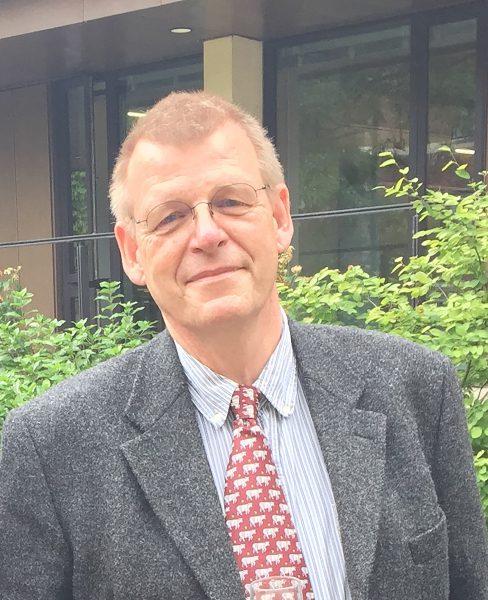A Tribute to Jan-Georg Deutsch (1956-2016)
By Festo Mkenda, Dphil History, Oxford

I want to talk about Georg as my supervisor and my mentor. I know I do this from a position of authority because I am speaking about my own experience, but I believe I speak for many students of Georg. I also remember Georg as a scholar.
It was, in fact, Georg who made me think of Oxford as a possibility for my DPhil. I had heard him present a paper at SOAS, and the content of his presentation, together with the way he handled his sources, struck me as a style that I would want to use in my own work for the DPhil. The paper that Georg presented was a sort of local perspective on global reality. He had gathered his material from a small street in Zanzibar called Soko Muhogo (literally meaning “Cassava Market”). Georg had spent time at Soko Muhogo, learning from the residents, interviewing some of them, and gathering any written material that emanated from there. He made a genuine effort to see global reality from the perspective of Soko Muhogo. In the end, the people of Soko Muhogo were presented as active participants in that global reality—they had been shaped by realities far beyond their small street and, at the same time, they had shaped those same realities in their own small ways. At Soko Muhogo, the global mingled with the local.
When I sent Georg an email asking for his opinion about my project, his response was immediate and, as I would discover later, quite characteristic of him—a one-liner: “Why can’t you come over for lunch!” Respectful and personal, his response helped me drop all the fears and reservations that I had about Oxford; he helped me realize that I could actually have lunch with the scholars at Oxford! He that way, he initiated a relationship that was at the same time academic, friendly, personal, supportive, and empowering.
As my supervisor, Georg was my first human contact with the “University of Oxford,” which I found to be fairly nebulous as an institutional structure that holds together colleges, faculties, schools, and so many other things. Dealing with me personally, he helped me strategize. I wanted to graduate in the shortest time possible; I sat down with him and agreed on how that might happen. He often proposed seminars that I might attend, persons that I might talk to, and even some of his own tutorials with other students that I might simply audit. Moreover, more than anything else, Georg gave me the freedom to pursue my dream. I only needed to tell him what I was about to do and go through a brief session of his usually highly informed criticism, then I would be ready to go. The next thing would be to submit to him a piece of written work. This he would return within a week, usually with critical comments and affirming compliments. I never left his office feeling that I had done a horrible thing and that I had to start all over again, and this is not because my work was always brilliant; it is because Georg had a way of being critically affirmative, and that in a very personal way. I always left his office full of ideas of what more I could do to develop that chapter further, to re-phrase that statement, to re-conceptualize that section, or even to re-interpret that document. I left Georg’s office feeling optimistic about new possibilities.
So, I remember Georg as my supervisor, and I have been marked by his style of doing supervision—more of empowering the student than of directing him or her. Georg always made sure that my thesis remained my project, not his!
Besides, I remember Georg as a scholar, who had an incredible capacity to read and synthesize all that he read so that, ultimately, it had a bearing on each one of his opinions and comments. If Georg defended his opinion strongly, it is because he worked hard to inform himself before he took a position. And, as in the experience of Soko Muhogo, Georg paid attention to the small details that might be ignored by others. This, too, is something that has marked me personally. Above everything else, it has made me like books and, more generally, documents. As a result, collecting and preserving books and documents has actually become my career.
Currently I am directing a project called “Jesuit Historical Institute in Africa,” based in Nairobi, Kenya. This is a research facility where we maintain a good Africana library and archives. We collect books and other relevant documents and create an environment where researchers can come in and use the material for free. This project is only five years old now. Before we started, I discussed the project with Georg. He was enthusiastically supportive of the idea and even thought he would be happy to work there! In 2014 he visited me in Nairobi and saw for himself the small progress we had made. He remained supportive to the end. He eventually bequeathed his collection to the Jesuit Historical Institute in Africa, and, as I speak to you now, the books are already on their way to Nairobi.
We have decided that Georg’s books and all the other documents that he gave to the institute will be preserved there as a special collection in his memory. We will ensure that they are properly preserved, then made accessible to researchers of Africa in Africa, and that all those who will make use of them will always know who donated them to us. We hope in this way to make Georg’s memory alive and to continue his passion for African history.
